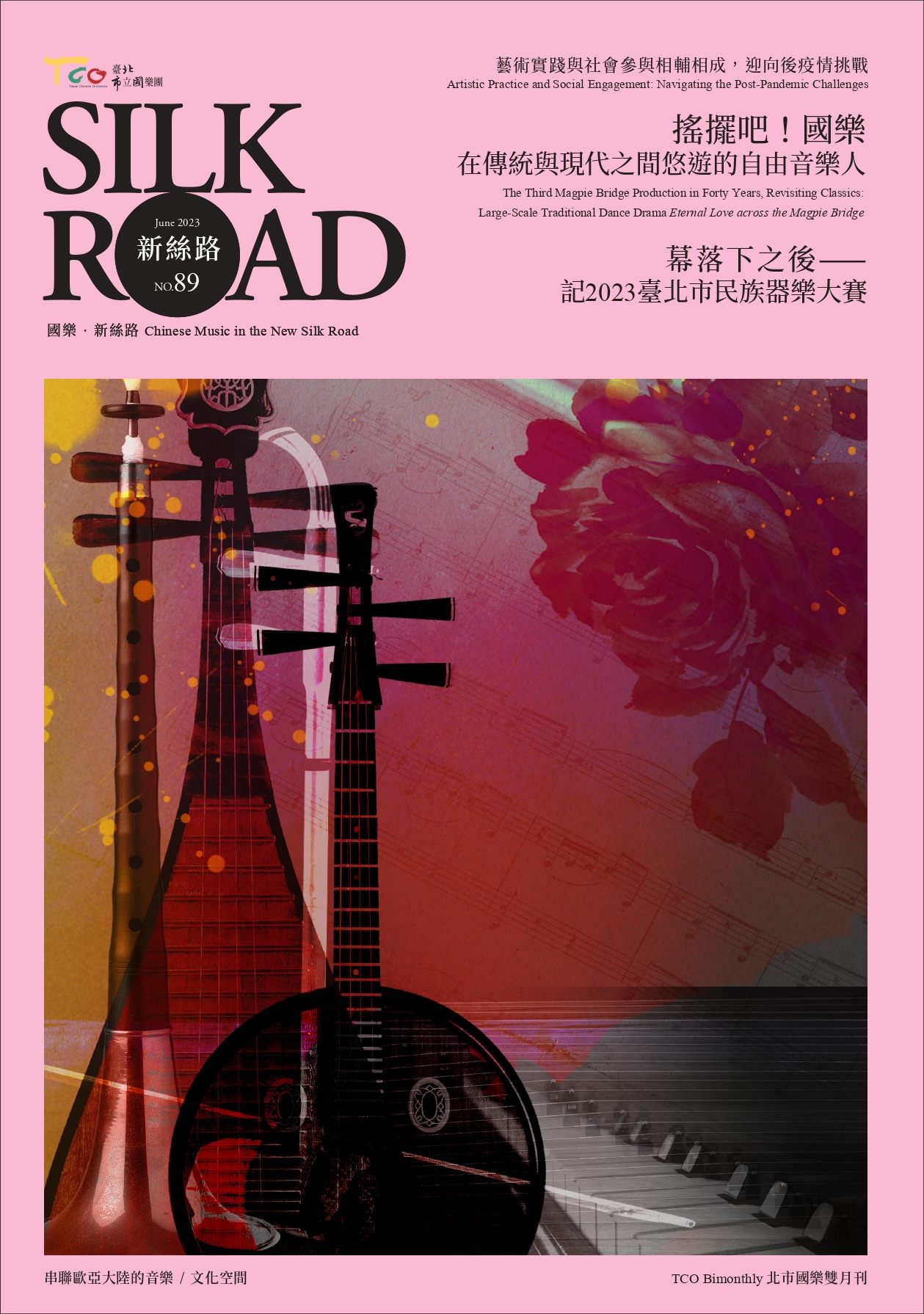Silk Road Bimonthly 089
The Taipei Chinese Orchestra (TCO) holds 120 to 150 concerts annually. Alongside orchestra-centric performances, several programs are carried out in collaboration with self-organized local teams and groups. As a public sector representative in arts and culture and a participant in government arts policy, the TCO's role goes beyond that of a typical orchestra. Its mission is to lead the way for Chinese music in Taiwan, achieved through advancement in performance and the demonstration of strong, diverse functions. As a government organization, a publicly funded professional orchestra such as the TCO provides a stable environment for performers and, in turn, helps elevate the overall artistic standards. It allows the public to engage in high-quality aesthetic experiences, which contribute to the accumulation of cultural capital in society. Meanwhile, Chinese music in Taiwan, though firmly rooted in tradition, has embraced new formats. This unique blend of old and new has turned Chinese music into a vessel for Taiwan's diverse cultural spirit. Therefore, the TCO is tasked with enhancing performance and shouldering more responsibility in research and promotion. It transforms present and past culture into resources for future sustainable development. This mission aligns with contemporary curatorial thinking, aiming to make music appreciation an immersive, multi-dimensional aesthetic experience enriched by humanistic thought. Arts and culture professionals must address shared challenges in the post-pandemic era. As we all know, COVID-19 forced the global art sector to pause and reassess its forms of presentation. While lockdowns may be behind us, the tumultuous period is not over. Amidst the recovery from the pandemic, Taiwanese musicians face not only the ongoing challenge of a declining birth rate but also the impact caused by changing audio-visual consumption habits. Traditional Chinese music performers are not exempt from these challenges. During times when audiences could not physically attend concerts, the TCO kept its momentum, offering continuous public access to traditional music through online performances. They also pooled resources for online performances with local teams, providing a vital lifeline for many arts groups. As art consumption patterns and forms evolved, the TCO facilitated events such as academic seminars, forums, and round-table discussions to encourage different perspectives and experiences, fostering unity and mutual support in preparation for future challenges. The word "challenge" can elicit feelings of anxiety, but it can also ignite innovation. The journey may encounter setbacks, yet certain paths might transform into enduring masterpieces that could inspire future generations. The traditional dance drama Eternal Love Across the Magpie Bridge is the season's grand finale. As a trailblazer in Taiwanese creative dance drama in the 1980s, its composer, Mr. CHEN Si-Sum, played a crucial role in the evolution of Taiwan's Chinese music. The original performance in 1984 left a significant mark in the Taiwanese performing arts community, and its re-performance during the 1995 Taipei International Dance Season was an unmitigated box office success. The current revival not only reconstructs the choreography but also rearranges the orchestration based on the current setup of the Chinese orchestra. It blends contemporary ideas and techniques into its stage design. By honoring cultural traditions and infusing them with new energy, the TCO is transforming its vision and mission into actions, kindling its spark within everyone, and propelling Chinese music in Taiwan ever forward. 02【Cover Story】Swing It! The Free Musical Spirit Soaring between Tradition and Modernity 03【New Vision】Points Of Intersection: American Composer Meets East-Asian Instruments

![Taiwan.gov.tw [ open a new window]](/images/egov.png)
